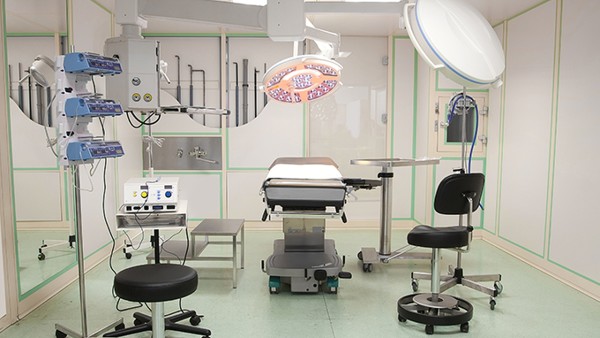Five Tips for Normal Delivery that Pregnant Women Should Remember!

Normal delivery, also known as vaginal delivery, is the most common way to give birth to a baby. It is a natural process that usually takes place over several hours. While most women can have a normal delivery, there are some factors that can increase the risk of needing a cesarean section, such as:
Breech presentation: When the baby is positioned with their feet or buttocks first, instead of their head.
Placenta previa: When the placenta covers the cervix, blocking the baby's exit.
Cord prolapse: When the umbilical cord comes out of the cervix before the baby.
Cephalopelvic disproportion: When the baby's head is too large to fit through the mother's pelvis.
If you are at high risk for a cesarean section, your doctor may recommend a planned cesarean section before you go into labor. However, if you are not at high risk, you can try to have a normal delivery. Here are five tips to help you increase your chances of having a normal delivery:
1. Stay active during pregnancy
Staying active during pregnancy can help to strengthen your muscles and prepare your body for labor. Exercise can also help to reduce your risk of developing pregnancy complications, such as gestational diabetes and preeclampsia.
Some good exercises for pregnant women include:
Walking
Swimming
Yoga
Pilates
Stationary cycling
Talk to your doctor about which exercises are safe for you to do during pregnancy.
2. Eat a healthy diet
Eating a healthy diet during pregnancy is important for both you and your baby. Eating plenty of fruits, vegetables, and whole grains can help to give you the energy you need to get through labor. It can also help to reduce your risk of developing pregnancy complications, such as anemia and preeclampsia.
Some good foods to eat during pregnancy include:
Fruits and vegetables
Whole grains
Lean protein
Low-fat dairy products
Talk to your doctor about which foods are safe for you to eat during pregnancy.
3. Get enough sleep
Getting enough sleep during pregnancy is important for both you and your baby. Sleep helps your body to recover from the demands of pregnancy and prepare for labor. It can also help to reduce your risk of developing pregnancy complications, such as fatigue and depression.
Most pregnant women need around 8-10 hours of sleep per night. However, you may need more or less sleep, depending on your individual needs.
If you are having trouble sleeping during pregnancy, talk to your doctor. They can recommend ways to help you get a good night's sleep.
4. Take childbirth classes
Childbirth classes can help you to learn about the process of labor and delivery. They can also teach you techniques to help you cope with pain and discomfort during labor.
Taking childbirth classes can help to reduce your risk of needing a cesarean section. They can also help to make you feel more confident and prepared for labor and delivery.
There are many different childbirth classes available. Talk to your doctor about which class is right for you.
5. Listen to your body
It is important to listen to your body during pregnancy and labor. Your body will tell you when it is time to go to the hospital.
Some signs that you are in labor include:
Regular contractions that are getting stronger and closer together
Leaking fluid from your vagina
Feeling pressure in your pelvis or rectum
Having a bloody show
If you are experiencing any of these signs, call your doctor or midwife.
The above is all the content that the editor wants to share with you. I sincerely hope that these contents can bring some help to your life and health, and I also wish that your life will be happier and happier.
Topic: #normal #delivery #for












